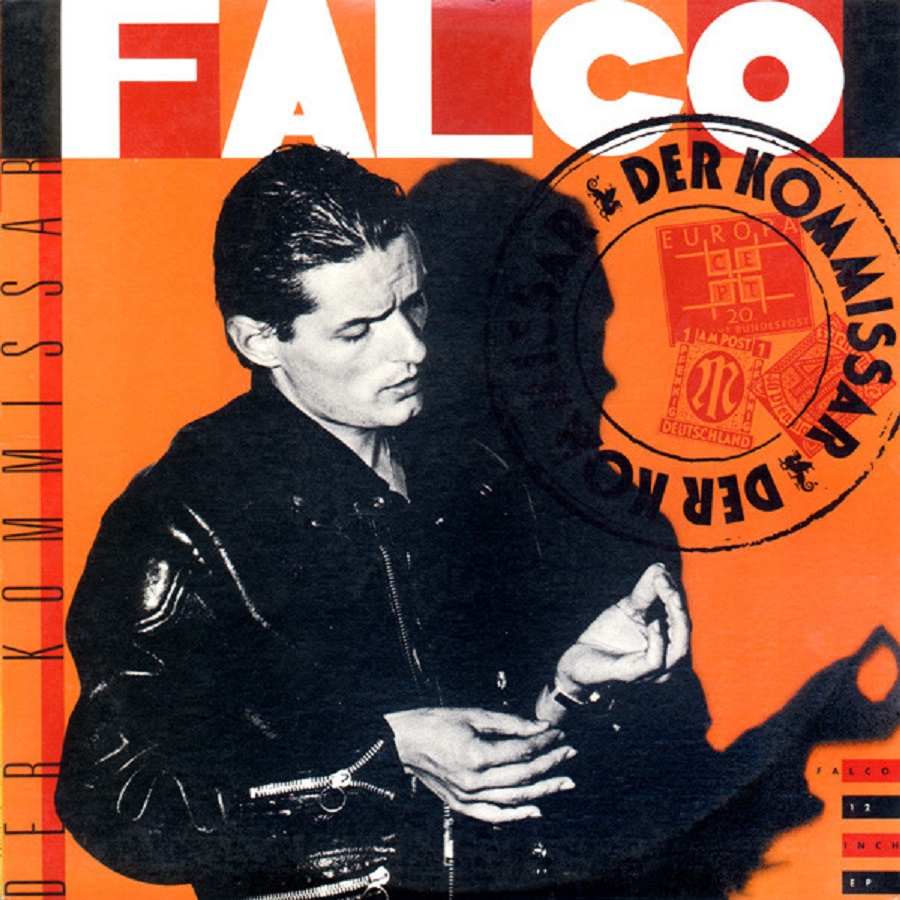Precious Pop Pearls: The Story Behind Falco – “Der Kommissar”
In the history of pop music, there are several songs that not only clearly belong to a particular era but also prove to be timeless decades later. “Der Kommissar” by Austrian artist Falco is such a timeless classic. This song, released in 1982, not only became an international hit but also laid the foundation for one of the most remarkable careers in European pop music. The story behind this single shows how a rejected song can grow into a worldwide phenomenon and how one artist was able to break through the boundaries of language and culture in music.
Falco
Johann ‘Hans’ Hölzel was born in 1957 in Vienna and grew up in a city that was still recovering from the war. From a young age, he showed an unusual fascination with music and performance. In the late seventies, he was active in the Viennese underground scene, first as bassist of the rock group Hallucination Company and later with Drahdiwaberl. Despite his connections with the alternative music world, Falco had a notably neat appearance that distinguished him from his more rebellious contemporaries.
He claimed to have chosen his stage name after the German ski jumper Falko Weißpflog, although he later also claimed it referred to the East German regime. These contradictory explanations were characteristic of the mysterious personality he cultivated. Falco dreamt of international fame and had the ambition to reach beyond the local Austrian market.
Der Kommissar
The story behind “Der Kommissar” actually begins not with Falco, but with producer Robert Ponger. The song was originally intended for Austrian singer Reinhold Bilgeri, who rejected it because he felt it was too soft. When Falco heard the song, he immediately saw the possibilities and decided to embrace it.
The song was released in December 1981 as the second single from his first studio album and dealt with themes such as drug problems and police surveillance in an urban environment. The timing was perfect: in the early eighties, artists worldwide were experimenting with electronic sounds and New Wave music. “Der Kommissar” fitted seamlessly into this era, comparable to the work of Kraftwerk from Germany and Gary Numan from England, but with Falco’s own unique Viennese twist.
The song reached the top of the charts in many European countries and marked Falco’s international breakthrough. The success was remarkable because German-language music rarely had such broad international appeal.
After the Fire
In 1982, British band After the Fire, just as they were announcing their dissolution after a tour with Van Halen, decided to record an English-language version of “Der Kommissar”. Their version was released on a compilation album and became an even greater success than the original in certain markets.
After the Fire’s cover reached number 5 on the Billboard Hot 100 in 1983, the song a hit in America as well. This was particularly remarkable, as the American market was traditionally very closed to non-English language music. The success was so great that Laura Branigan, who had recorded ‘Deep in the Dark’ to the same melody, did not release her version to avoid competition.
This international adaptation demonstrated the universal appeal of Falco’s composition and proved that good music truly knows no language barriers.
Einzelhaft
“Der Kommissar” came from Falco’s debut album “Einzelhaft” from 1982, produced by Robert Ponger. This album laid the foundation for Falco’s unique sound that blended traditional Austrian influences with modern electronic pop techniques. The album also contained other songs such as “Maschine brennt”, which showed his experimental side and his willingness to push boundaries.
“Einzelhaft” not only became a commercial success but also established Falco’s reputation as an innovator in European pop music. He proved that a German-speaking artist could have international appeal, something few of his predecessors had achieved. The album demonstrated his versatility and laid the foundation for his further career.
Jeanny
After his definitive breakthrough with “Rock Me Amadeus” in 1985, which would make him the only German-speaking artist with a number 1 hit in America, Falco released his most controversial single in January 1986: “Jeanny”. The song was written and composed by Falco together with Rob and Ferdi Bolland, who also handled the production.
“Jeanny” was controversial because of the lyrics that told the story of an obsessive relationship between a man and a woman named Jeanny. Critics claimed that the song glorified rape, which led to a boycott by German television and radio stations. German media personality Thomas Gottschalk even called the song ‘nonsense’.
Despite or perhaps because of the controversy, “Jeanny” became an enormous success. The song reached the number 1 position in numerous European countries. The song was described as cinematic and deeply disturbing, more a whispered nightmare than a hit single. The controversy showed Falco’s courage to push boundaries and raise difficult themes, even if that meant criticism and censorship.
This song once again proved that Falco was not only a performer but also an artist who was not afraid to question social norms. It remains one of his most discussed works to this day and shows the complexity of his artistic vision.
The story of Falco and “Der Kommissar” perfectly illustrates how music can break through cultural and linguistic barriers. From a rejected demo to a worldwide hit, from a local Viennese artist to an international star, Falco’s journey shows the unpredictable nature of the music industry and the power of artistic authenticity. His tragic death in 1998 ended a career that changed European pop music forever.
![]()





